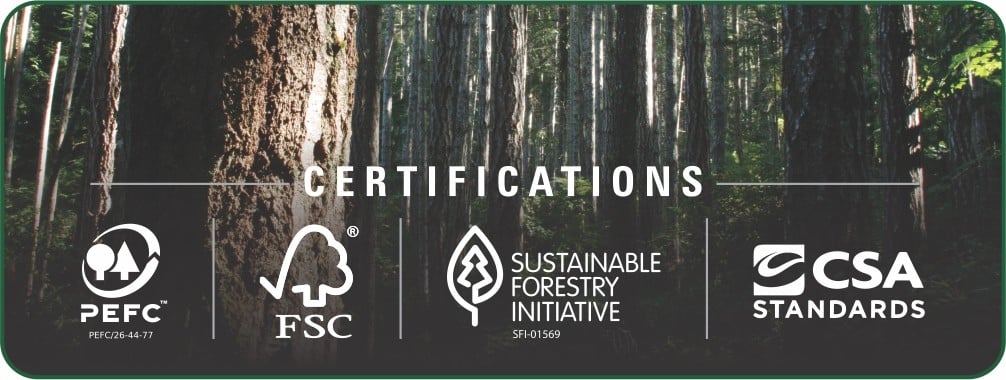Commemorating Wood
World Wood Day is a cultural event held on March 21st, the vernal equinox, to raise awareness about the importance of wood in a sustainable world through biodiversity and forest conservation. The day serves as a reminder of the inherent value and importance of wood, as well as its appropriate applications. Wood is a bio-material that is both environmentally benign and renewable. Wood is a versatile and naturally beautiful material that has played an essential part in human history. World Wood Day is a fantastic opportunity for individuals to contribute to the environment and earth in whatever way they can for a more sustainable future.
The need of finding sustainable wood products has never been more important in the modern-day, with global warming and climate change becoming an ever more severe issue. Failing to employ sustainable raw material supply will further hasten climate change and raise global temperatures.
Any wood sourced from forests that are managed in an environmental-friendly manner is considered sustainable. It is renewable because the forest is regularly monitored to ensure that long and short-term damage to the environment and species is avoided. Maintaining the forest, by encouraging trees to grow in lieu of those that are cut, has the extra benefit of absorbing carbon emissions for future generations. As a result, it will be crucial in keeping our air clean and limiting the rise in global temperatures.

Certifications
British Columbia (B.C.) is a global pioneer in sustainable forest management, fulfilling current and future generations' environmental, social, and economic needs. The province's outstanding reputation is bolstered by strict forest laws, trained forestry experts, and extensive monitoring, compliance, and enforcement. The stringent forest management rules and regulations also completely define what sustainable forest management in B.C. entails, as well as what actions are permitted on public forest land.
Wood is the only material that has third-party certification processes in place to ensure that they are sourced sustainably. Only 10% of the world's forests are certified, with Canada accounting for 36%. Canada is the international leader in forest certification with B.C. contributing more than any other province.
B.C. has 47 million hectares of certified lands which includes 44 million hectares certified to SFI (Sustainable Forestry Initiative), 2 million hectares certified to CSA (Canadian Standards Association’s, Sustainable forest management Standard) and 1.5 million hectares certified to FSC (Forest Stewardship Council. These three programs used in B.C. – CSA, FSC and SFI – all promote principles, criteria and objectives that are viewed around the world as the basis of sustainable forest management.

Why wood?
Wood requires significantly less energy to turn into products than other materials, and it uses relatively little fossil fuel energy. The majority of the energy consumed comes from transforming remaining bark and sawdust into electrical and thermal energy, which contributes to wood's low carbon footprint.
Policymakers and design experts recognize the benefits of forests and forest products in terms of reducing greenhouse gas emissions and seek to achieve it. The life cycle assessment (LCA) helps with green design by assessing resource consumption — such as energy, emissions, and waste — over the course of a building's lifespan. It entails totaling the inputs and outputs for each framing member, panel, fastener, finish material, coating, and other building elements.
LCA is a powerful method for displaying the entire life-cycle environmental implications of choosing one building material over another that is widely acknowledged around the world. It's part of a lot of green building rating schemes, showcasing wood as an impeccable choice for sustainable infrastructure.
At Canadian Wood, we believe in sourcing wood sustainably as much as we believe in giving back to the environment for every tree harvested. To know more, check out our website.


